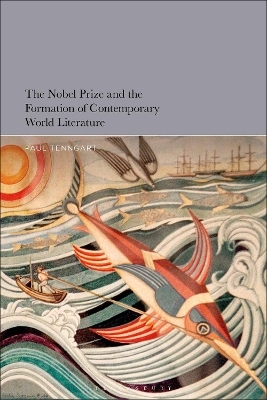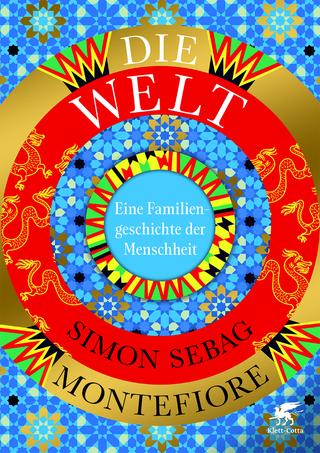
The Nobel Prize and the Formation of Contemporary World Literature
Bloomsbury Academic USA (Verlag)
978-1-5013-8212-3 (ISBN)
Few scholars would deny that the Nobel Prize is the most prestigious literary award in the world. But what mechanisms made it possible for 18 Swedish intellectuals to become the world’s most influential literary critics? Paul Tenngart argues that the Nobel Prize in literature has become a special kind of international canonization: exerted from a non-central, semi-peripheral position, the award sometimes confirms and reinforces hierarchical relations between literary languages and cultures, and sometimes disturbs established patterns of dominance and dependence.
Drawing from a wide range of contemporary theories and methods, this multifaceted history of the Nobel Prize questions how the Swedish Academy has managed to keep the prize's global status through all the violent international crises of the last 120 years; how the selection of laureates shaped the idea of 'universal' literary values and defined literary quality across languages and cultures; and what impact the prize has had on the distribution and significance of particular works, literatures and languages.
The Nobel Prize and the Formation of Contemporary World Literature explores the history and impact of the Nobel Prize in literature from the first award in 1901 through recent controversies involving Bob Dylan and #MeToo, arguing that the prize is a unique performative act that has been – and still is – central in our continual and collective construction of world literature.
Paul Tenngart is Associate Professor in Comparative and Swedish Literature at Lund University, Sweden. He is co-editor of AnthropoScenes: A Climate Fiction Competition (2020) and co-author of Northern Crossings: Translation, Circulation and the Literary Semi-periphery (Bloomsbury, 2022).
1. The Stockholm Consecration
Relative Contemporaneity
Culture, Capital, Crown – and Science
Cosmopolitan Dreams
Canon Formation from the Side
2. Entering the Cosmopolitan Scene: The Rise of the Prize
Early Breakthroughs and Setbacks (1901–1913)
Position Re-Established (1914–1929)
A Broader Significance (1930–1939)
World Consecration (1944–1953)
Breaking News (The 1950s and Onwards)
Concluding Remarks
3. Encompassing Everything: The Scope of the Prize
World Ambitions
The European Template
Between Universalism and Pluralism
The Problem of Access
The Nominations
The Actual Distribution of Awards
Concluding Remarks
4. Making History: The Impact of the Prize
Impactful Awards
The Unawarded
The Already Canonized
An Alternative Literary History
Nobel Effects and the World Literary System
Shaping the Cosmopolitan Space
Political Consequences
Concluding Remarks
5. Defining Literature: The Poetics of the Prize
Prize Motivations
The Role of the Author and the Purpose of Literature
The Poetics of Genre
Poetics and Politics
Nobel Lectures
Concluding Remarks
6. Looking Ahead: The Survival of the Prize
Crises Endured
The Balancing Act
Literary Canonization in an Age of Polarization
Acknowledgment
Appendix: Nobel Laureates in Literature 1901–2022
References
Index
| Erscheinungsdatum | 21.10.2023 |
|---|---|
| Verlagsort | New York |
| Sprache | englisch |
| Maße | 152 x 229 mm |
| Themenwelt | Geisteswissenschaften ► Geschichte ► Allgemeine Geschichte |
| Geisteswissenschaften ► Sprach- / Literaturwissenschaft ► Anglistik / Amerikanistik | |
| Geisteswissenschaften ► Sprach- / Literaturwissenschaft ► Literaturwissenschaft | |
| ISBN-10 | 1-5013-8212-8 / 1501382128 |
| ISBN-13 | 978-1-5013-8212-3 / 9781501382123 |
| Zustand | Neuware |
| Informationen gemäß Produktsicherheitsverordnung (GPSR) | |
| Haben Sie eine Frage zum Produkt? |
aus dem Bereich


